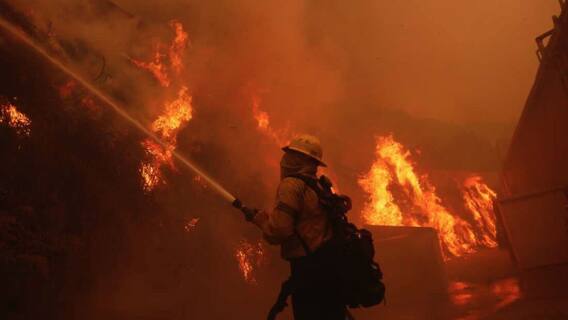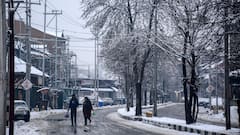Explorer
Advertisement
Air Pollution: Delhi Gasps For Breath As Air Quality Remains In 'Very Poor' Category Today
Meanwhile, the AQI recorded in Lodhi Road in Delhi was 218 (PM 2.5) and 217 (PM 10) on Sunday morning. Mathura Road recorded a figure of 304, IIT Delhi docked at 324 and Airport Terminal 3 at 315.

The overall air quality in the national capital continued to remain in 'very poor' category as for the second consecutive day in Delhi on Sunday the overall Air Quality Index (AQI) was recorded at 365, according to System of Air Quality and Weather Forecasting And Research (SAFAR). (PTI)
New Delhi: The overall air quality in the national capital continued to remain in 'very poor' category as for the second consecutive day in Delhi on Sunday the overall Air Quality Index (AQI) was recorded at 365, according to System of Air Quality and Weather Forecasting And Research (SAFAR). The AQI between the range of 51 to 100 is considered as satisfactory; 101-200 is moderate; 201-300 falls under the category of poor. While 300-400 is considered as 'very poor', levels between 401-500 fall under the 'hazardous category'.
Meanwhile, the AQI recorded in Lodhi Road in Delhi was 218 (PM 2.5) and 217 (PM 10) on Sunday morning. Mathura Road recorded a figure of 304, IIT Delhi docked at 324 and Airport Terminal 3 at 315.
The spike in air pollution in the national capital is primarily due to insufficient rainfall and low wind speed. Residents of Delhi have been badly affected by the poor air quality. Locals especially the middle-aged people complained of breathless and fatigue and have urged the government to take requisite measures to combat the menace.
Also Watch -
According to a cardiologist at Ram Manohar Lohia Hospital, Dr Tarun, there has been a 10-15 per cent rise in patients suffering from cardiovascular disease in the past few days after Delhi's air pollution levels rose sharply. "People should remain indoors and increase uptake of anti-oxidants which are found in abundance in fruits. Whenever one has to go out then the usage of N95 mask is mandatory because it is the only mask that protects from PM pollution. People should improve the environment at the homes by having some plants like money plant, snake plant, etc. Finally, if it is affordable then air purifiers should be used in the homes," the doctor added.
During the winter season each year, most of Northern India suffers from a spike in toxicity in the air due to the change in weather and crop residue burning in the neighbouring states of Haryana, Punjab and Uttar Pradesh.
(With inputs from ANI)
Follow Breaking News on ABP Live for more latest stories and trending topics. Watch breaking news and top headlines online on ABP News LIVE TV
View More
Advertisement
Trending News
Advertisement
Advertisement
Top Headlines
World
Election 2024
India
World
Advertisement


Sayantan Ghosh
Opinion






































